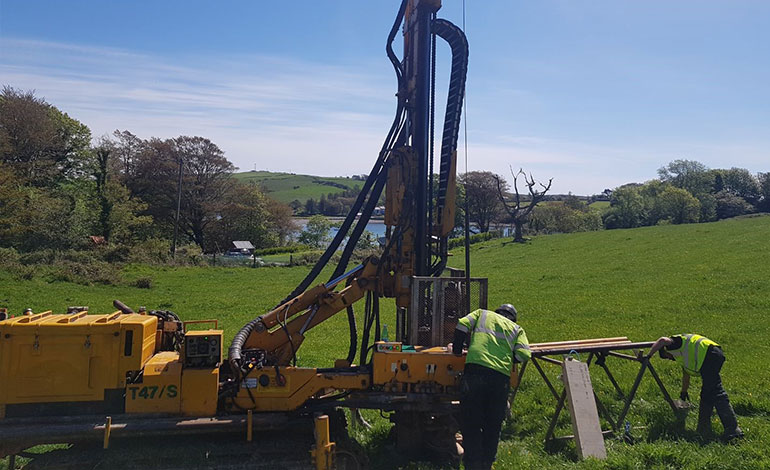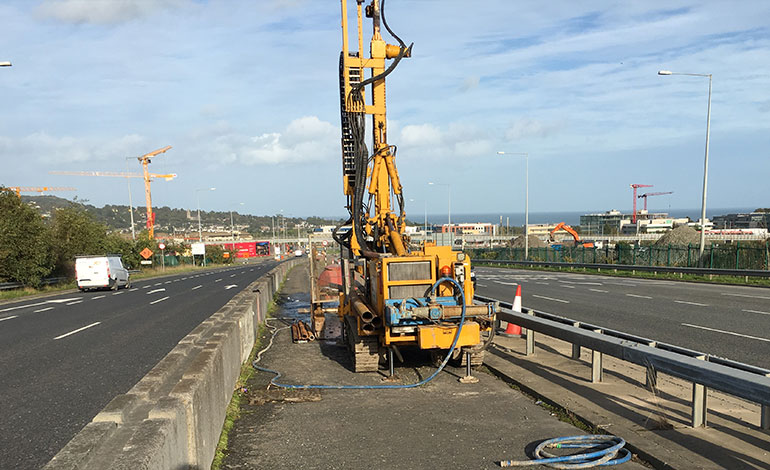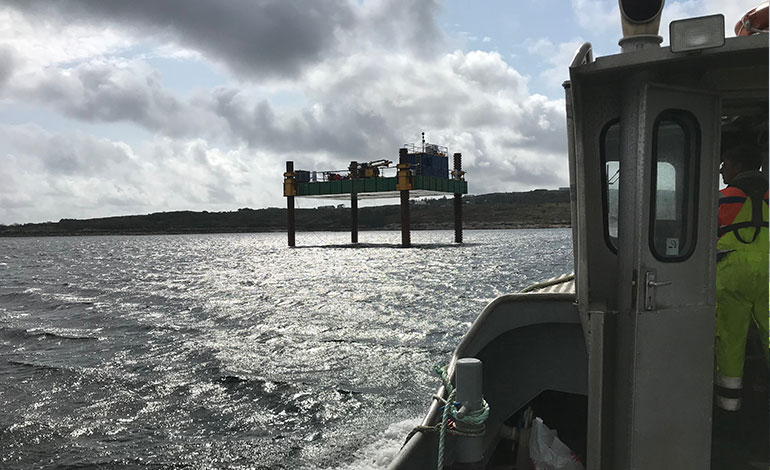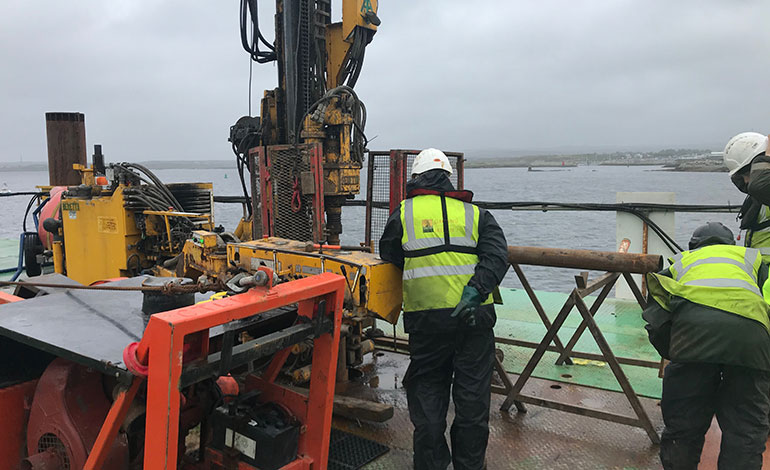



Rotary Drilling
Ground Investigations Ireland Ltd. have a total of 4 Beretta T44/T47 Rotary Coring rigs which are used for Geotechnical and Environmental ground investigations.
The four Rotary coring rigs are track mounted and can traverse most terrain, access soft ground sites and get into awkward locations. Several are mounted on rubber tracks allowing them to travel on paving without causing unnecessary damage.
Rotary drilling techniques are employed where penetration is required through very dense or very stiff soils, or into bedrock. Standard methods employed may be subdivided into rotary percussive (open hole drilling), rotary coring and Geobore ‘S’.
Our rotary drill rigs are also suitable for mounting on floating plant and jack-up barges for over-water and marine drilling.
The open hole drilling method is usually completed with compressed air flush and is only suitable for rapid drilling to enable rock core recovery at greater depth through rotary coring techniques.
Rotary boring is used for obtaining core samples of rock. The drilling method involves a powered rotary cutting head on the end of a shaft, driven into the ground as it rotates. The system requires lubrication (air-mist, water or polymer) to keep the cutting head cool. Wire-line core barrels are rotated from the surface by rods normally of the same diameter as the outer core barrel. The core is brought to the surface within the inner barrel using a wire rope or attached line to a recovery tool. This system is particularly suitable for superficial or weak deposits, as any vibration from the drilling action is minimised due to close-fitting rods used within the hole.
Geobor 'S' is used for obtaining high quality samples of the overburden, the underlying rock and the interface between the two. The method is similar to rotary coring however a triple-core barrel system is used, the non-rotating inner barrel contains a removable tube or liner. At the end of each core run, this liner with the core it contains is extracted and stored in a core box.
Standard Penetration Tests giving N values may be undertaken within the rotary boreholes using all of the above methods giving a strength profile to the overlying soils.
Where required, such as on contaminated sites and restrictive urban settings, drilling flush may be recycled to avoid discharge to ground level or paved areas, thus ensuring minimal disturbance and reducing the risk of cross-contamination.
Upon completion of rotary drilling an experienced Engineering Geologists will log the recovered core, measuring total core recovery - (TCR), solid core recovery (SCR), Fracture spacing, Fracture Index (FI) and Rock Quality Designation (RQD). We can provide discontinuity logging for the detailed logging of fractures where required.
These parameters along with the rock type enable the engineering characteristics of the rock to be determined for design purposes.
Ground Investigations Ireland Ltd. can specify rock testing, including Point Load Index and Unconfined Compressive Strength Test, to determine the rock strength further assessing the rock mass. Detailed geotechnical logs are prepared using AGS compatible software.
Ground Investigations Ireland Ltd. can provide interpretive reporting on the rock mass characteristics where required, allowing for determination of suitable methods of excavation, stable angle for cutting and the suitability of re-use as an engineering material.
All fieldworks are carried out in accordance with Eurocode Part 2 Ground Investigation and Testing (ISEN 1997-2:2007) and BS 5930:2015.